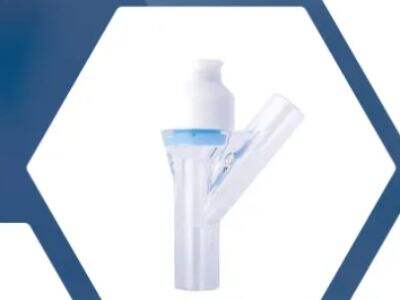There are all these little tools and this stuff that doctors or nurses do to help you feel better when you go to the doctor or hospital, and it may not occur to you. Step 3: Pinch ClampThe pinch clamp is a tool that is very, very important and almost universally underestimated. What the Heck are Pinch Clamps: To summarize, pinch clamps are one of those tools that doctors and nurses use to do their work safely and properly. These clamps are actually quite essential and every medical practitioner uses this on daily basis for providing care to his/her patients and in this post, we will dive into why pinch clamps are required!) Powered by U MED, The globally watched medical equipment company. U MED is here to help you.

Blood Collection: Clamp on Grip Handles
Pinch Clamps are also used as a type of blood collection. This is the what when doctors or nurses have to take someones blood they take a needle and gently cut through the vein and pump all that essential life water into the tube. Sometimes, though, they need to keep the blood for a while just to make sure there is plenty of blood in their system. Enter: the pinch clamp. The tube is pinched with a pinch clamp to stop blood flow until the required volume for that test has been drawn. A blood sample can be collected and the test results will become accurate; this is a very crucial process.
All this shit in the ER — Pinch Clamps
In E.R., doctors and the nurses at work pay attention to their patients and respond swiftly when life saving tool like Rubber Tubes is essential. Here is where time is key and a pinch clamp can be useful to restrict IV fluids. All About Iv Fluids, Replacement Blood Which You require For Drugs And Nutritrients. Pinch clamps help doctors better control the volume of fluid entering the body, and that is very important to enhance patient health. This helps to ensure delivery of the correct amount of medication while avoiding dangerous outcomes due to occurrences such as air bubbles or an over pressurized vein. Reinforce clamps may also be employed to run-around blood job regarding an urgent situation so as that health-associated staff may maintain speedy help in regards to a stand or even still.
IV Therapy with Pinch Clamps
IV therapy is a medical treatment where fluids, medications and in some cases nutrients are delivered directly into the bloodstream via a tube or needle. This is an excellent process for patients who are unable to take medications by mouth or require high volumes of fluid in the GI tract. This is mandatory to keep pinch clamps while applying IV therapy. This provides health care providers with a method to control the rate at which the fluids or medication enters into the patients system. Preventing overloading a patient with so much fluid at once he becomes uncomfortable is also crucial. They likewise help maintain the cross-contamination of other fluids that a client need to concern because they will lead to some troubles should not be transferable. Pinch clamps ensure that the IV line is stable, and this aspect is very critical for a consistent movement of medicine through an IV therapy procedure.
Taking Care of Pinch Clamps
Medical instruments like Slide Clamps require lots of care, and the pinch clamps are no exception. After every use, it must be cleaned carefully and disinfected so that the germs will not spread. Health care providers must also secure the correct size pinch clamp to each circumstances tube. It has to be the proper size and inner diameter for the pinch clamp to do it's job correctly! The first type of medical pinch clamps we are going to take a look at, are ideal for higher pressure applications and feature both brass or stainless steel constructions that can be reused up to dozens of times due to the clamp being easy to sterilize.
The Importance of Pinch Clamps for Medical Procedures
Pinch clamps-- It may not be on the major of intellect if you believe of your physician or a hospital, but these are basic devices that each clinical expert require every single working day to burst the picture and convey right into a lifetime. Doctors and nurses use pinch clamps to secure blood samples, prevent leaks during emergencies or IV therapy.

 EN
EN
 AR
AR BG
BG HR
HR CS
CS DA
DA NL
NL FI
FI FR
FR DE
DE EL
EL HI
HI IT
IT JA
JA KO
KO NO
NO PL
PL PT
PT RO
RO RU
RU ES
ES SV
SV TL
TL ID
ID LT
LT UK
UK VI
VI HU
HU TH
TH TR
TR AF
AF MS
MS GA
GA HY
HY BN
BN LO
LO LA
LA NE
NE KK
KK